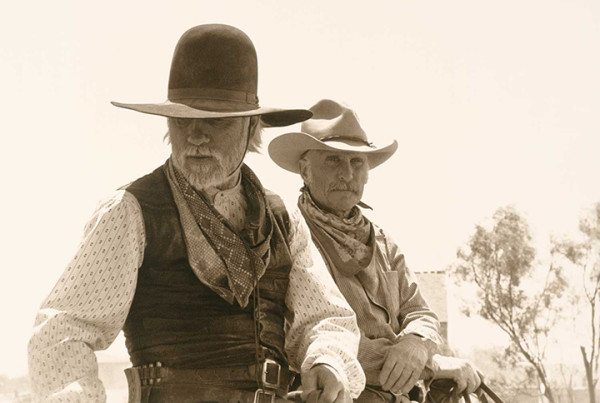Over the last decade or so, a surge of new criminal activity has been born out of the internet era — from identity theft to cyber terrorism. Lawmakers are now playing catch-up to figure out how to tackle this new category of crimes. One digital crime in particular has been getting more attention recently from media outlets and lawmakers alike — revenge porn.
Revenge porn is the release of explicit photos and videos by a spurned sexual partner without the victim’s consent. At least 13 states have laws on the books to outlaw nonconsensual pornography. This week, a federal judge struck down Arizona’s revenge porn law in a suit brought by the American Civil Liberties Union (ACLU). Victim advocates applauded Arizona for what they saw as a concrete move towards giving victims legal ground to stand on. But Arizona’s case also raises some constitutional issues for the new Texas law against revenge porn that goes into effect this summer.
Rebecca Robertson is a legal and policy director for the ACLU of Texas, and she says lawmakers should tread carefully when enacting laws that aim to protect victims from revenge porn. “The ACLU and your listeners, probably everybody, recognizes that revenge porn raises very serious privacy concerns,” Robertson says. “But criminalizing nude photos is not the solution.”
Robertson says the problem is that lawmakers looking for solutions crafting legislation that overreaches. Her concern is that the laws don’t protect individuals’ right to freedom of speech. “[These laws] sweep up things that most people would recognize as protected by the First Amendment,” she says, “like nude photos that have historical or artistic value, or that are news-worthy and therefore matters of social concern.”
Even if it wasn’t intended, laws against revenge porn could make it illegal to share pictures like those taken at Abu Ghraib, for example.
“If you are a bookseller or newspaper publisher who displays those images of prisoners taken at Abu Ghraib, you would know that those images were taken without those prisoners’ consent,” Robertson says. “But that does not mean that you intend to harm them when you publish a book that contains those photos, or print a newspaper that contains those photos. And in fact, what you’re trying to do is something that society would regard as really valuable.”
So how closely does Texas’ law mirror the law in Arizona? “There are some differences between the Arizona Statute and SB 1135 that was enacted by the legislature here in Texas,” Robertson says. “But my concern is that the Texas law, like the Arizona law, sweeps too broadly…. It would criminalize conduct that I think a lot of us recognize constitutes protected speech.”
Robertson says although the government may have reasons to pass certain laws that could impact people’s freedom of speech, there are limits.
“It should never be permitted to do so by just choosing the content and saying ‘We don’t like this message.’ The First Amendment gives us that guarantee because free speech is so essential to a functioning democracy,” she says.
So what’s Robertson’s advice for lawmakers looking to enact new revenge porn laws? “You want to make sure that the law requires criminal intent, that the person who’s publishing the image actually intended to harm the person that’s depicted and did in fact harm the person that’s depicted,” she says.
Robertson offered no comment on whether or not the ACLU plans to challenge the new Texas law, but she did say the organization is reviewing the law carefully.















